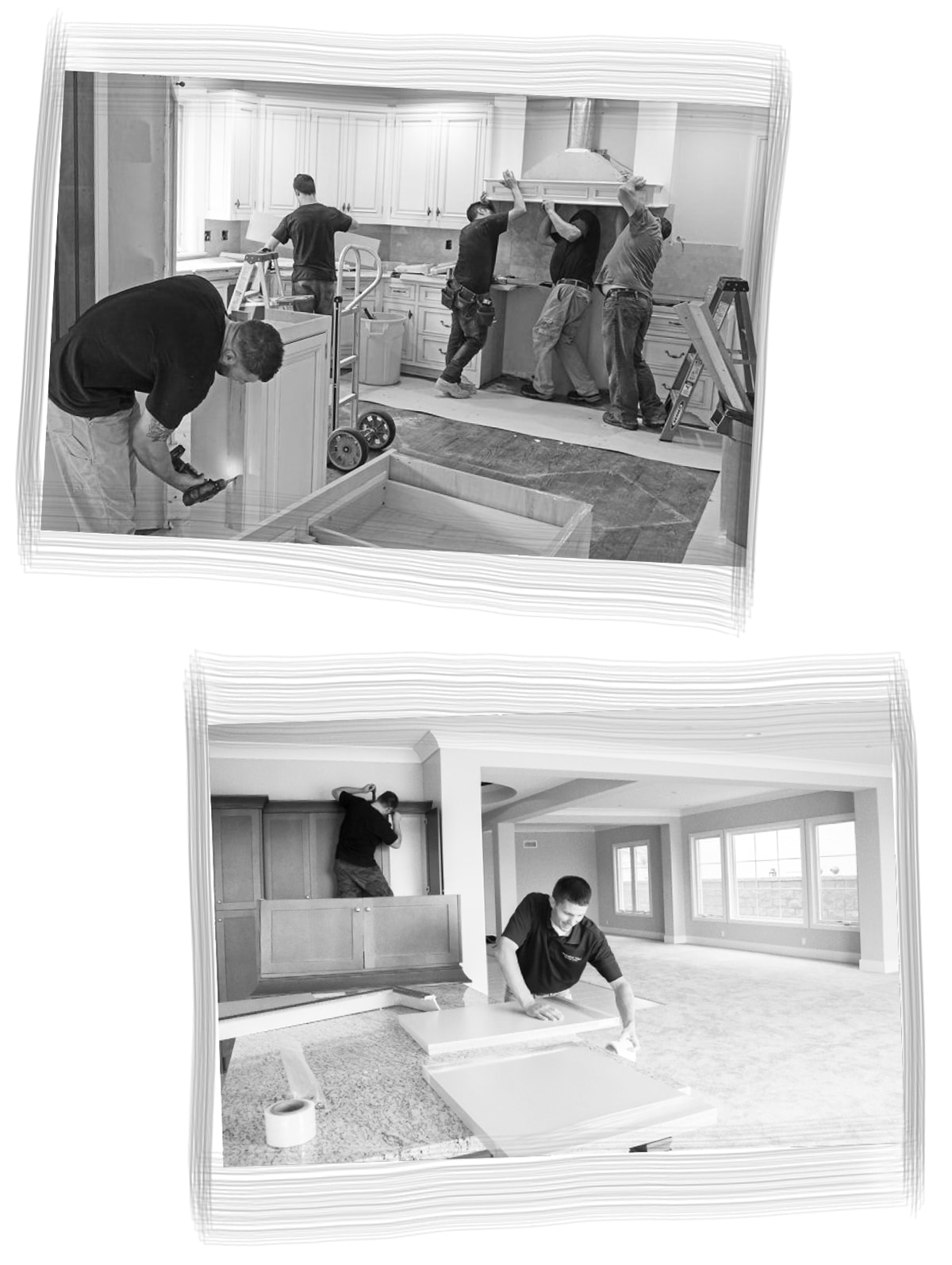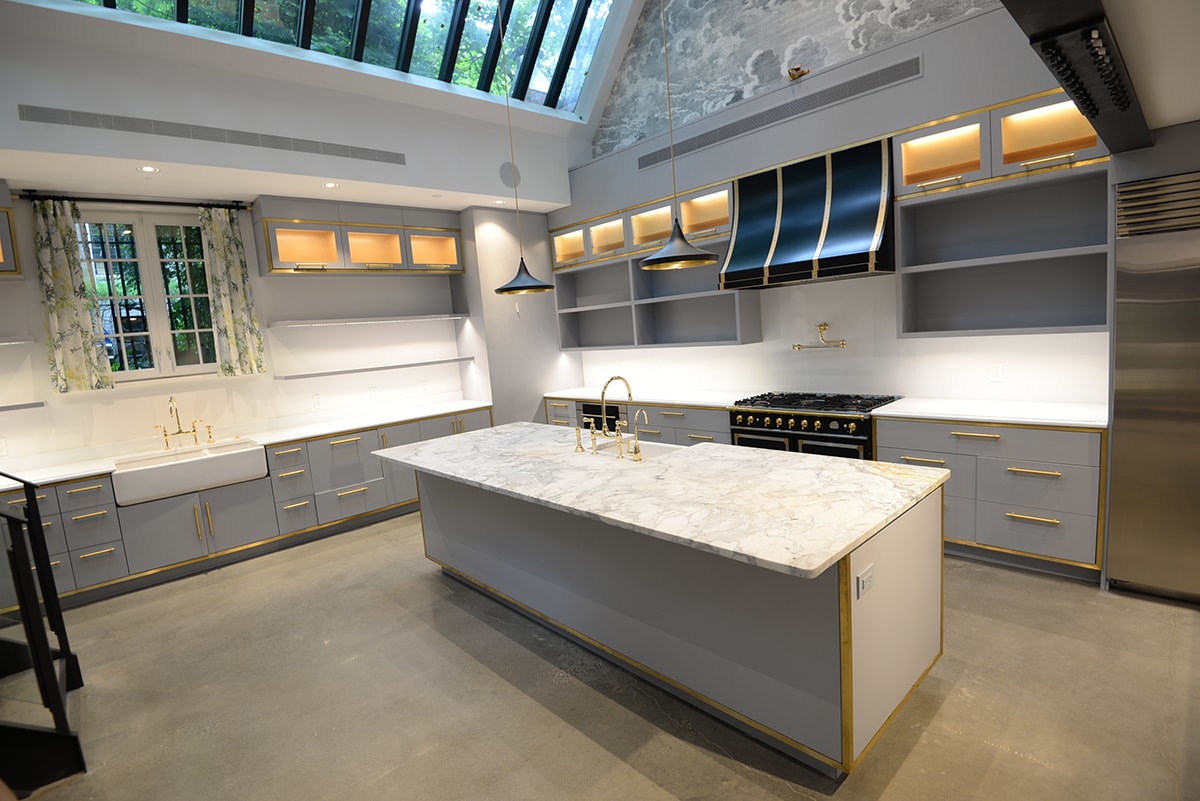Calling All Angels
Fifteen years ago, Steve Feldman created Renovation Angel to fill a need—luxury kitchen recycling.
As the global conversation about climate change heats up, people are starting to realize that there is no such thing as throwing something away. When you toss your garbage in the trash it may leave your immediate vicinity, but unless it is biodegradable and composted, it’s just a matter of changing geography. You may be done with that plastic bottle but it will live on the planet forever, in one form or another. On a larger scale, imagine the afterlife of kitchen components, often brand new, that are removed during home renovations.

Renovation Angel’s crews remove kitchens as part of their white-glove service.
Enter Steve Feldman, who realized that there was a critical need for recycling in the kitchen industry. “I’m a recovering addict, so I was working on fundraising for addiction recovery in Connecticut when one of my top donors lost everything in the stock market crash of 2001.” Feldman panicked when he received the news that donations would be drying up. “I had no idea what I was going to do.” An answer presented itself in the form of a wealthy neighbor. He was living next door to the Queen of Iran, and while driving past her home one day he noticed a “Demolition in Progress” sign. “I thought, ‘Queens don’t live in shabby houses, there had to be wonderful kitchen fixtures and furniture in there. Why not earn the money instead of asking for cash?’” A real estate agent heard about the idea, told the local newspaper, and in October 2001 a feature article ran about Feldman and his project. “I got 36 phone calls from architects, designers, builders, even hedge fund managers, and I spent four years developing my pilot program. In 2005, I launched Renovation Angel with a relatively simple charitable mission, to protect the earth, create new recycling jobs, and help those in need.”
In the past 15 years, Renovation Angel has recycled over 7,000 kitchens, not to mention hundreds of bathrooms, and other assorted home furnishings. They have created over $24 million in new recycling jobs, and have given back $2.3 million to charities that combat homelessness, and help youth at risk and people in addiction recovery. They are the only kitchen recycling company in the country, based in Fairfield, New Jersey, with crews in California, Texas, Chicago, Florida, and the Hamptons. As Feldman says, “Wherever there is a nice kitchen, we’re there.”
Renovation Angel’s success is based on several important points. Feldman says, “We do not solicit for money. We are asking the architects and designers to trust us and let us into their projects, and their clients are not getting on any kind of list. We earn our money through entrepreneurship. All of the items we recycle are sold in our 43,000 square foot showroom, and we have created an after market for people who want to buy pre-owned and showroom display at a very good price.” Resale prices are between 50% to 90% off list, and buyers range from people on a very tight budget to people who just love the idea of getting a bargain on luxury items.
Feldman makes the process of donating a kitchen as easy as possible. He offers white glove service, coordinating everything from removal to creating an appraisal so that the donation can be written off. “We work with a national appraisal company that does a fair market value appraisal. If somebody gives you a $100,000 kitchen from a brand new apartment in New York, that kitchen might be appraised for $50,000. You cannot take that deduction unless you have that appraisal.” Feldman continues, “So we set up that process at the beginning. The homeowner pays for it, but it’s affordable and it’s turn-key.” The white glove service also includes a project manager who follows the entire process, handling the initial inquiry, the inspection, insurance for the building, scheduling, and removal. For security reasons, they also work with a former member of the CIA who conducts background checks on all Renovation Angel employees, from truck drivers to showroom managers—critical when dealing with high-profile clients and luxury properties.

A luxury kitchen that Renovation Angel removed, and resold in their 43,000 square foot New Jersey showroom.
7,000 kitchens later, Feldman is just getting started. “We are working with the trade, with architects, developers, showrooms, anyone that has a kitchen or bath to get rid of. And they see the value in this especially now, when recycling and sustainable practices are at front of mind.” He says that an estimated 100,000 luxury kitchens are thrown away every year. In order to cast a wider net and make sure that as many kitchens are recycled as possible, he created something called the net value estimate. “When people see the value of something, then they’re more interested in doing it, right? We can look at one picture from a real estate listing, and say, ‘That kitchen is going to create $30,000 of tax savings, $10,000 of removal savings, and your only cost is $350 for an appraisal. Firms are now starting to build this into the proposal to their clients. It is good for the industry because you get people who just bought a $5 million apartment but they don’t like the finishes. They don’t want to throw it out, but we show them that they can get money back, and suddenly their renovation budget goes from $100,000 to $140,000 because they are saving money.”
Feldman’s vision is a big one. “I want to recycle every luxury kitchen in America, which would make us a billion dollar industry. That would mean that for every kitchen I recycle, I could give one away to a victim of flood or fire, or a poverty-stricken family.”
